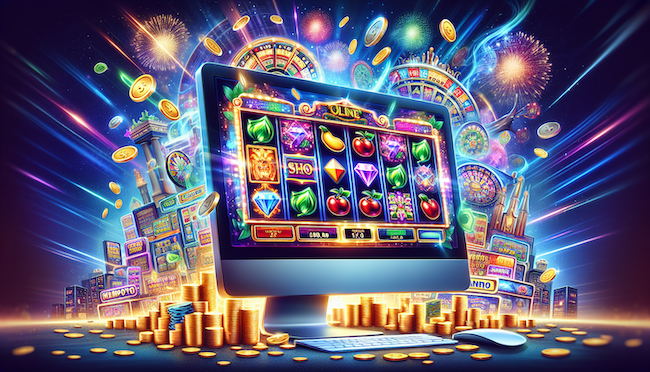Casinos have long captivated the human imagination with their promise of excitement, risk, and the tantalizing possibility of fortune. From their ancient origins to their modern-day glitz and glamour, the world of casinos is as complex and multifaceted as the games they host togel totomacau. This article delves into the evolution of casinos, their cultural significance, and their impact on societies around the world.
The Historical Tapestry of Casinos
The history of gambling stretches back thousands of years, with some of the earliest evidence found in ancient China and Rome. These early forms of gambling were not quite like the casinos we recognize today but laid the groundwork for the institution’s evolution.
The concept of the casino as we understand it began to take shape in 17th-century Italy. The word “casino” itself derives from the Italian word “casa,” meaning house. Originally, it referred to a small villa or summerhouse, but over time it evolved to denote a place for social gatherings and gaming. The Casino di Venezia, established in 1638, is often credited as the world’s oldest casino. It offered a variety of games, including card games and dice, setting the stage for the casino’s role as an entertainment venue.
The Golden Age of Casinos
The 19th and early 20th centuries marked a significant period of expansion for casinos. This era saw the rise of iconic gaming hubs like Monte Carlo in Monaco and Las Vegas in the United States. The Monte Carlo Casino, opened in 1863, was not just a place for gaming but a symbol of luxury and high society. Its elegant architecture and sophisticated ambiance attracted the elite from across Europe.
Las Vegas, however, became the quintessential symbol of the modern casino. The transformation of Las Vegas from a dusty desert town to a bustling gambling metropolis began in the 1940s. The construction of the Flamingo Hotel and Casino by gangster Benjamin “Bugsy” Siegel was a turning point. The city’s development accelerated with the establishment of more luxurious resorts and casinos, and it soon became synonymous with gambling and entertainment.
Modern Casinos: Technology and Innovation
Today’s casinos are a far cry from their historical predecessors. The integration of technology has revolutionized the industry. Online casinos, for instance, have made gambling accessible to people worldwide, breaking down geographical barriers and offering a plethora of games at the click of a button. Virtual reality (VR) and augmented reality (AR) are also making inroads, promising to enhance the gaming experience with immersive environments and interactive features.
Moreover, the rise of mobile casinos has catered to the on-the-go lifestyle of modern players. Smartphones and tablets enable users to gamble anytime, anywhere, further expanding the reach and appeal of casinos.
Casinos and Culture: A Complex Relationship
Casinos have a profound impact on culture and society. They are often portrayed in films and literature as glamorous or nefarious locations, reflecting their dual nature as places of both excitement and potential peril. Classic films like “Casino Royale” and “Ocean’s Eleven” showcase the allure and intrigue associated with casinos, while also highlighting their darker aspects, such as addiction and crime.
In many cultures, casinos are seen as entertainment venues, akin to theaters or amusement parks. They contribute significantly to local economies, providing jobs and boosting tourism. However, they also bring challenges, including gambling addiction and socio-economic issues. Responsible gambling practices and regulatory measures are crucial in mitigating these negative effects and ensuring that casinos operate ethically.
The Future of Casinos: Trends and Predictions
As technology continues to advance, the future of casinos looks promising yet complex. Innovations such as blockchain technology are expected to enhance transparency and fairness in gaming. Cryptocurrencies might become a standard method of transaction, adding a new layer of convenience and security.
Additionally, the integration of AI in casinos could lead to more personalized gaming experiences, with algorithms tailoring recommendations and promotions to individual preferences. The growth of esports and skill-based gaming may also shape the future landscape, attracting a new generation of players interested in competitive and interactive gaming experiences.
